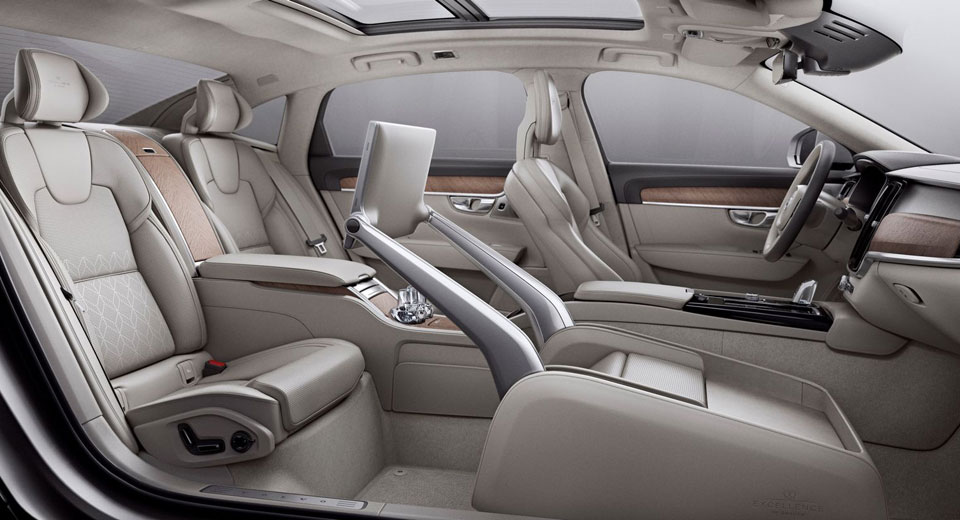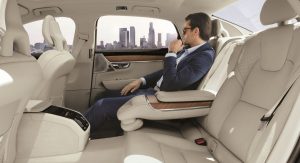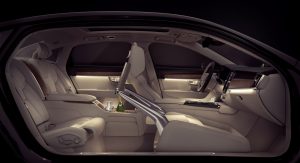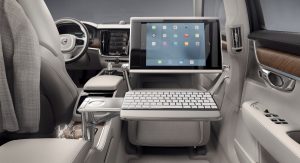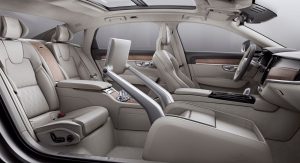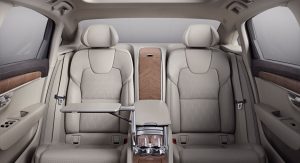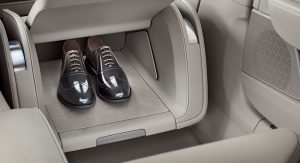While many of its competitors are designing interiors focused on the driver, Volvo believes that it is better prepared for the future of driverless cars, leading the way in autonomous vehicle interior design.
When designing its models, the Swedish brand has long focused on passenger comfort, rather than performance and therefore driver focused designs. This is most obvious with the recently introduced S90 Excellence made exclusively for China as it ditches a front passenger seat entirely to improve legroom and provide greater comfort for rear passengers.
Speaking with Autocar about this, Volvo’s senior vice president of design, Thomas Ingenlath said “Not being a company that has a passion for power and driver focus means that we have spent more time exploring the passenger lounge area. In the S90 Excellence [a three-seater model for China], we used a special centre console and took a seat out to explore what could you actually do with this space.
“Now we see all these exercises have become elements in a big puddle and we were naturally researching in this area. It shows that our way of looking into a car has naturally turned into how you use a car in the future,” Ingenlath said.
In addition to this, Volvo has design studios in the United States, Sweden and China, three unique markets where interior needs differ greatly. Robin Page, vice president of interior design at Volvo says that countries like China focus on rear passenger comfort, while the U.S. is quite focused on electronic features and Europe remains focused on the driver.
In the future, it seems apparent that these markets will become more similar as the focus on the driver lessens and more attention is given to passengers. If that happens, Volvo is poised to pounce



